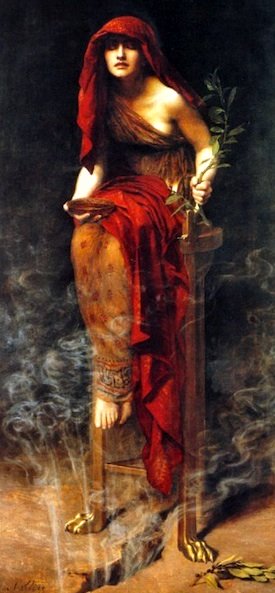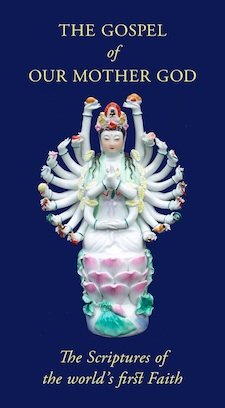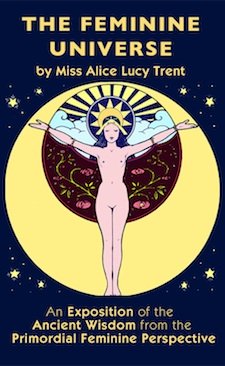Magic and Religion

Honored Madria Pamela of the Collyridian Filianic Communion asks an interesting question on magic and religion:
Honored Miss,I would like to know if our Faith Tradition has anything to say either for or against the use of magic.
Thank you.
Sincerely,
Madria Pamela, CFC
The Christian religion, over the last century or so, has taken a strong stance against "magic". On the other hand, many non-Western religions are seen as being quite bound up with "magic".
We are putting "magic" in quotation marks here, because the first thing we need to consider in asking this question is what the term magic actually means. In modern Western usage, it seems to have come to denote almost any means of influencing the material world by non-material means.
We say "almost" because most people would not include prayer as a kind of magic, although it can influence material events and is itself non-material. Prayer is presumably not counted as "magic" because it is seen as a humble petitioning rather than a means of direct manipulation of matter. Though the point at which "prayer" ends and "magic" begins is difficult to define clearly.
There have long been traditional objections to "sorcery", often on the grounds that it corrupts religious or quasi-religious symbols or rituals to selfish or material ends. Also in the highly "jealous" Abrahamic traditions (in the Biblical sense that the Hebrew God is a "jealous God"), magic has been criticized for any tendency to recognize quasi-religious beings outside the Abrahamic ambit (in the same way that the Hebrew women were criticized by Jeremiah for worshipping the Queen of Heaven).
Objections to "sorcery", however, do not constitute an objection to all forms of "magical" practice.
In relatively recent times, many "conservative" Christians have raised objections to just about every belief or practice that might even hint at recognizing anything beyond physical matter. For example, practices like taking account of the phases of the moon and the positions of the planets when planting crops (which was recommended and taught by Augustine of Hippo) are considered "magical" and therefore "diabolical", as are medical practices like homoeopathy and acupuncture – because their effects cannot be explained in purely physical terms.
These attitudes, it must be understood, are of very recent origin and would have been unrecognizable even to extreme Protestants of the early modern period, like Milton (whose works are full of traditional "magical" thinking).
The idea that the extreme 19th-century mechanist-materialist view of the world (a view that has since been severely undermined by such things as quantum physics) is the only legitimate belief makes a certain sense for the credal atheist. It is a little puzzling why this exact same hypermaterialism – only with "God" balanced uneasily on the top – should have become the fundamental world-outlook of "conservative" Protestants and many "conservative" Catholics.
But for whatever reason that came about, it is clear that it has, and can have, nothing to do with traditional Christianity, since the total-materialist world-view did not exist before the 17th century at the earliest.
How does the Filianic Faith of Our Mother God look at the question of magic and religion?
In the first place, let us be logical. If it is selfish and "wrong" to manipulate matter by non-physical means, then it must be equally selfish and "wrong" to manipulate matter by physical means. If the simple act of attempting to rearrange the world to our liking is in itself wrong, then it must be wrong by whatever means it is achieved.
This is clearly absurd, because every time we pluck a fruit and eat it, or give milk to a baby, we have rearranged the material world in accordance with our will. If we were not doing this all the time, we could not go on living.
As Filianists, we believe that maid is not simply an "evolved animal", but a spiritual being who became incarnate on the material plane over a long period of time. This gradual "consolidation" of maid would tend to imply that in her earliest millennia on earth, she was scarcely material at all, and that when she first began to interact with the material world, she influenced it by non-physical or what today would be called "magical" means.
In the early stages of her consolidation, maid would do very little that would leave traces on the physical earth. As human civilization progressed ("downward", into matter), she would very gradually begin interacting with the material environment on its own physical level. Working on increasingly "consolidated" levels of matter – first wood, then stone and, later still, metals. Each would mark a stage in her consolidation. And at each stage she would be using less "magic" and more "technology" to use the modern terms for these different modes of interaction with matter.
While none of the above is in any sense an "article of faith" for Filianists, it makes a good deal of sense as part of the narrative of maid's descent into the material realm.
Is there a case, then, for saying that "magic" is "wrong" because it belongs to an earlier and higher stage of maid's descent and is no longer appropriate for the present highly-materialized era? Certainly "magic" is less consistent and effective than before, and material technology becomes increasingly effective both because of the "consolidation" of the cosmic environment itself and the increasingly strong alignment of maid with her material surroundings.
There is an old Eastern story of a man who sat in meditation by the river bank for many years. One day a great sage came to the bank and the man proudly said:
"I have meditated for many years, and now I am able to walk on the water across this river."
The sage replied "Then you are a great fool. For one small coin you could pay the ferryman to take you across."
The point of this story is not that "magic" is "wrong" but that it is a highly inefficient way of achieving ends that in this Kali Yuga are much more easily achieved by physical means. A more important point is that profound meditation for the achievement of siddhis – spiritual powers – is mistaking the mere outward "signs" for the true End. In this case there is an opposition between magic and religion, not because magic is inherently "wrong" but because the technique used would be better employed to more purely spiritual ends. It is for the same reason that mediaeval alchemists who used their art as a means to achieve spiritual union derided more materialistic alchemists – who were trying to make actual physical gold out of lead – as souffleurs.
But none of this has anything to do with denouncing magic as wrong, and there may indeed be cases where magical activity can achieve certain results that, even in this age, are beyond the reach of physical means.
We would suggest that the "conservative" (actually highly revolutionary and modernist) Christian hatred of "magic" comes about precisely because the modern world has lost all real knowledge of what lies outside the physical domain (meta-physics) and therefore bundles anything non-physical together with the "spiritual" or "religious" – ignoring the fact that much of this actually belongs in the psychic or lunary domain. Having done this, all magic will be rejected as either "improper religion" or the invocation of "demons".
Now it is true that people dabbling in psychic activity of any kind without knowing what they are doing can very easily be exploited by demonic forces. But again, this is no argument against "magic" – only against its misuse. In the same way, an automobile in uninstructed hands can be an instrument of death. Since this is an age where true knowledge about the nature of extra-material things is very limited, there may well be a case for saying that "magic" is more dangerous than ever before.
But, the psychic domain is still part of our being and of the manifest universe, and while psychic activity is less powerful in affecting material events than it used to be, it may well still have its place if it is used wisely and judiciously.
The manipulation of matter by physical or by psychic means is as good or bad as the skill and intentions of its user. We see no essential moral distinction between the two.
The confusion of the psychic for the spiritual, on the other hand – the error of the man who could walk across the river – is certainly no less of a danger today than it was in the past. Much of the "New Age" movement is founded on that very error. And the dangers of ignorant misuse of psychic forces is greater than ever, since knowledge of the psychic domain has diminished even as knowledge of the material domain has increased.
But provided such errors are avoided, those of us who do not subscribe to the superstition of a 19th-century mechanist-materialist world with a "god" balanced precariously on top have no reason to denounce "magic" per se.
Send us your questions or comments
Chapel of Our Mother God Homepage
All written material at the Chapel of Our Mother God is copyright. Should you wish to reproduce any portion please contact us for permission.
Facebook or YouTube
![]()
This section:
Metaphysics
Gospel of Our Mother God
The Gospel of Our Mother God is a collection of inspirational texts, prayers and daily inspiration for the Mother-Faith devotee or household.
The Feminine Universe
The Other Philosophy
Everything you have ever heard comes out of the patriarchal world-view. Its materialism, its religion, even its feminism. Here is the other way of seeing the world; the natural way: the way that everyone saw things before patriarchy and will again when patriarchy is long forgotten.
Visit the Sun Daughter Press Reading Room

